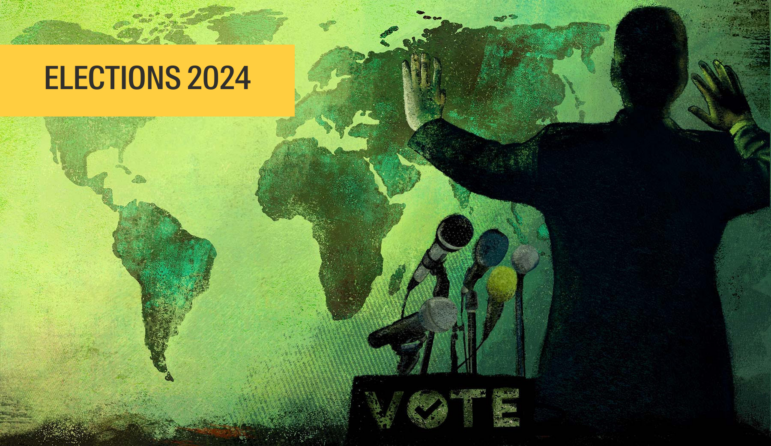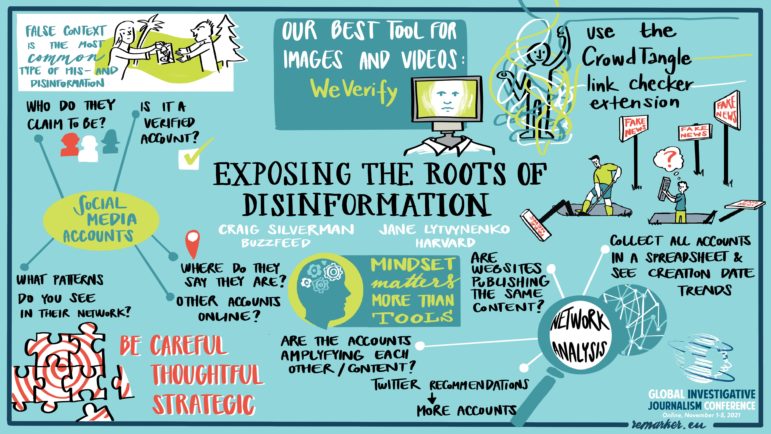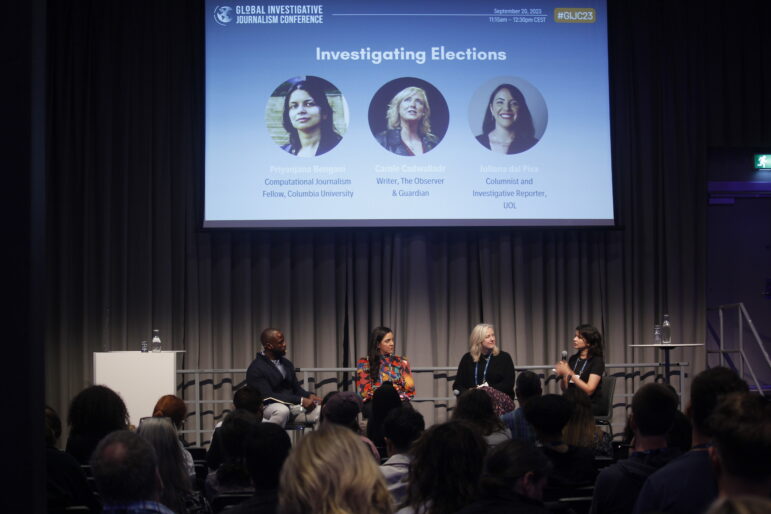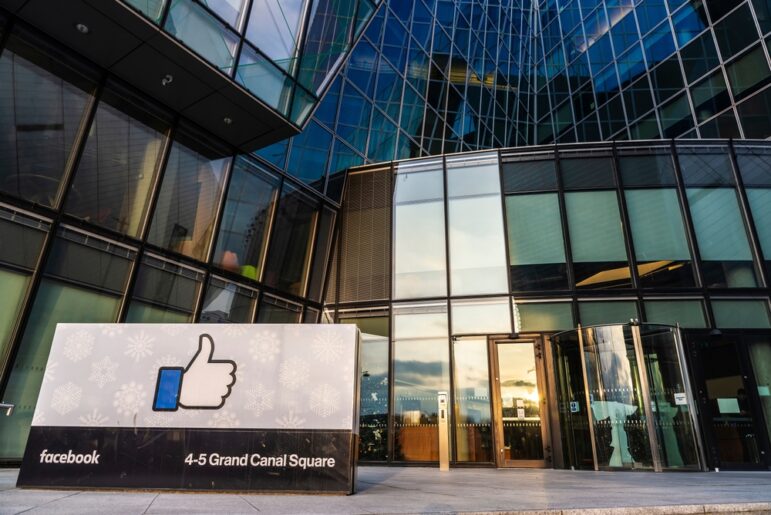

Photo: Pexels
Tailoring Fact-Checking Tools to Local Trends: Tips From India, Senegal, and Turkey
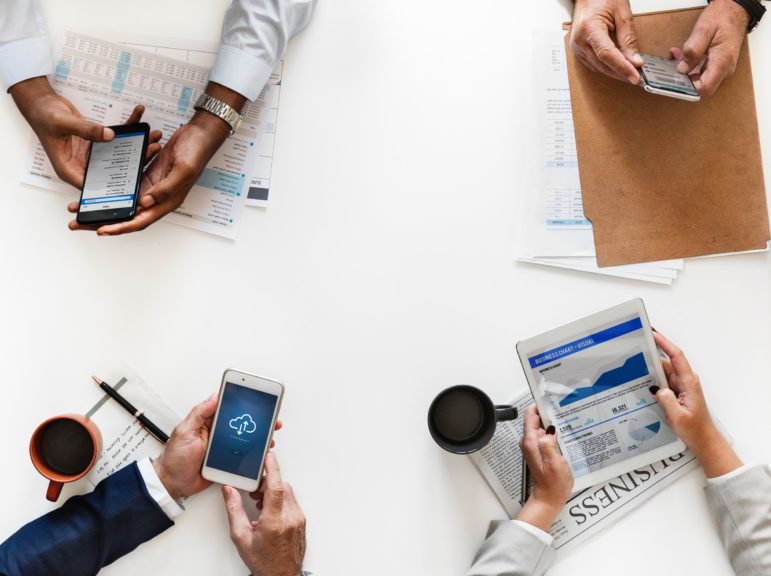
Image: Pexels
Online misinformation flows freely across borders. Many of the most common misinformation tropes and tactics reappear from country to country, from videos repackaged out of context to misleading memes.
But there are local variations, too. The political, social, and technological context of a region or country creates specific misinformation problems, and fact-checkers need a variety of tools to tackle them.
At the 11th Global Investigative Journalism Conference in Hamburg, journalists from fact-checking organizations in Senegal, Turkey, and India explained how they verify the types of misinformation most prevalent in their regions.
They shared essential fact-checker tools, including reverse image searches and video verification methods. But their toolkits were far from one-size-fits-all.
Turkey
The editor-in-chief of verification platform Teyit, Gülin Çavuş, described a trend of fake political leaflets in Turkey, which are designed to mimic and damage political rivals. “We call it asymmetric propaganda,” she said. “It’s a really common way to make propaganda in the Turkish elections, going back to the 2016 election.”
These leaflets can be difficult to fact-check, so Teyit turned to traditional reporting methods: hitting the streets to talk to people, and calling a party’s office to verify whether the material is real.
Another common form of political misinformation in Turkey, according to Çavuş, is basic photo manipulation: adding the face of a controversial figure, like the exiled Turkish cleric Fethullah Gülen, to a photo with other politicians, tainting them by association.
This makes Yandex particularly useful for Turkish fact-checkers, as the Russian search engine appears to be stronger at facial recognition, at least in Turkey, said Çavuş. Microsoft’s search engine Bing is Çavuş’ next best choice for searching these images, because it allows you to isolate and search for part of the image, for example the face of the person you want to identify.
There have also been a lot of misleading claims in Turkey about the number of people who attended a particular political rally. Foursquare is quite popular in the country, so Teyit uses the location-based sharing app to help verify where an event took place. The open-source platform Map Checking then provides an estimate of how many people could technically fit into any given public space, allowing Teyit to fact-check inflated crowd numbers.
India
The sheer volume of misinformation in the world’s largest democracy presents a technological challenge, said Govind Ethiraj, the founder of Indian fact-checking sites BOOM, IndiaSpend, and FactChecker.In. The large number of languages spoken in the country also makes it hard to keep up with how misinformation spreads. (BOOM publishes in three languages: English, Hindi, and Bangla.)
Ethiraj’s team is working with technology companies on how artificial intelligence could help them reach the scale required. They are also working with academic researchers to detect any patterns in the messages forwarded to their tip line for WhatsApp, the Facebook-owned messaging service. “WhatsApp is one of the main vehicles of misinformation in India,” he said.
At least 33 Indians have been killed in mob attacks since 2017 following child kidnapping rumors on WhatsApp. Ethiraj is keenly aware that fact-checking can have life-or-death consequences. This requires extra precautions, including those of traditional reporting. “We deal with a lot of sensitive cases,” Ethiraj said. “We have to go on the ground. If there is a threat of violence we’ll speak to people in local law enforcement for their advice [before publishing].”
Senegal
One of the biggest challenges in Senegal is the poor quality of data with which to verify facts, said Samba Dialimpa Badji, the editor of Africa Check’s French newsroom in Dakar. When his team looked for statistics on mental health data in Senegal, experts told them there was none. When they tried to verify a claim about road accidents, they found the data was incomplete.
There are similar issues with data across Africa. So whenever Africa Check fact-checkers were able to dig up public statistics during their work, they wanted to make sure their audiences could find them, too. In 2016, Africa Check established Info Finder, a repository of reliable data on 14 topics, from agriculture to health. This month, Africa Check launched a French-language version of the tool, with information from Senegal and Ivory Coast, called Infothèque.
Their next step is to build up their database of experts to help journalists and researchers dig deeper into the data. “The idea is that if someone is interested in a particular topic like health, they can find the studies in Infothèque,” said Dialimpa Badji. “Then if they want to go further they can be in touch with that expert to find more data.”
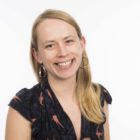
Charlotte Alfred is an investigative journalist and editor who has reported from the Middle East, Africa, Europe, and the US. Her work has been featured by HuffPost, De Correspondent, The Guardian, News Deeply, Zeit Online, El Diario, and First Draft, among others.

